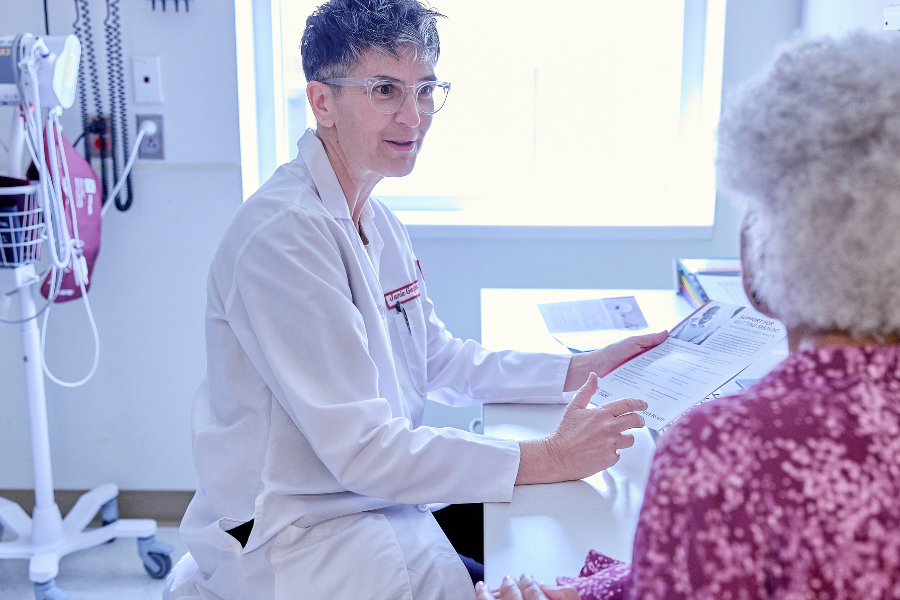You probably know what it’s like to have a sleepless night: tossing and turning ... channel-surfing at 2am… or browsing social media for hours… being exhausted and cranky the next day… But if these nights become the rule and not the exception, it’s time to look at possible medical reasons for poor sleep. Sleep problems can be caused by many medical conditions, including lung disorders. At the Temple Lung Center, we often see patients who have been referred to us by their primary care physician in order to better understand why they are having trouble sleeping.
Sleep Apnea: The Usual Suspect
Although there are many reasons why you may have trouble sleeping, I often first look for signs of a condition called sleep apnea. Sleep apnea occurs when airways repeatedly narrow or collapse when throat muscles relax during sleep, which blocks the flow of air and causes “apneas”—short periods when you’re not breathing. This causes snoring, choking, or gasping during sleep. Apnea interrupts sleep, so people who have sleep apnea are often sleepy during the day and can feel irritable, unable to concentrate, and forgetful. Often people with sleep apnea don’t know they have it unless a sleeping partner mentions their snoring.
Snoring Isn’t Really That Bad, Right?
Another thing I ask my patients about is snoring. When people snore this can be a sign of sleep apnea, so it is not something that should be ignored. Although sleep apnea is a common condition, if untreated, it can also affect other major medical problems like diabetes, hypertension and other types of heart disease. In addition to being a real health risk, sleep apnea can cause serious accidents in the workplace or while driving.
What to Expect at a Sleep Specialist Visit
When I see patients for the first time, I typically start with questions about their sleep and health habits, symptoms of fatigue and sleepiness, and any medications being taken. I may also ask about how much sleep patients get, how long it takes to fall asleep and whether they sleep walk or talk. A physical examination is also performed to look for risk factors, including anything that might make the upper airway smaller. If we think a patient may have sleep apnea, we may send them for a diagnostic test at a sleep lab or arrange a home sleep test. If the results indicate that the patient has sleep apnea, they may be fitted for a Continuous Positive Airway Pressure (CPAP) machine that will treat their sleep apnea. We may also ask patients to make lifestyle changes like losing weight, which may contribute to their condition.
Medical Issues
Other medical issues can cause sleep problems too. It is important not to ignore sleep problems or label them as “minor.” In addition to sleep apnea, other medical issues are common in patients with sleep problems, such as COPD, depression, heart disease, body pain, stroke, obesity, or chronic asthma. Overall, if you are having trouble sleeping, or suffer from excessive snoring, make an appointment with Temple’s Sleep Disorders Center. A proper diagnosis and treatment could lead to a better night’s sleep and more wakeful hours during the day.


